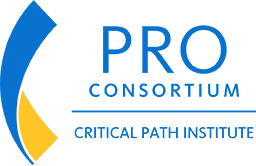TUCSON, Ariz., March 19, 2020 — The U.S. Food and Drug Administration’s (FDA) Center for Drug Evaluation and Research (CDER) has funded a cooperative agreement to establish a Rare Disease Clinical Outcome Assessment (COA) Consortium. The grant (U01FD006882)* was awarded to the Critical Path Institute (C-Path) with the National Organization for Rare Disorders (NORD) as a sub-awardee. The first step taken toward the establishment of the new consortium has been the creation of the Rare Disease Subcommittee within C-Path’s Patient-Reported Outcome (PRO) Consortium. The PRO Consortium will serve as an incubator for the maturation of a pre-competitive, multi-stakeholder consortium within C-Path’s COA Program.
The PRO Consortium’s Rare Disease Subcommittee includes representatives from C-Path, NORD, FDA, the Patient-Centered Outcomes Research Institute, the National Center for Advancing Translational Sciences, and biopharmaceutical firms within the PRO Consortium that are developing treatments for rare diseases. In addition, plans are underway to enable rare disease-focused biotech firms not currently members of the PRO Consortium to be included in the strategic planning for the new consortium. Once established, the Rare Disease COA Consortium’s activities will be aimed at accelerating the development of new medical products intended to safely and effectively treat people with rare diseases by creating and curating a resource of information on publicly available COAs identified as potentially fit-for-purpose endpoint measures in treatment trials for rare diseases. The premise is that existing COAs may be able to be used or modified for use across multiple diseases sharing common characteristics.
Along with planning the membership, governance and organizational structure of the new consortium, the Rare Disease Subcommittee has launched a multi-pronged effort aimed at tackling challenges in the assessment of clinical benefit in rare disease treatment trials. The first pilot project under this initiative is to identify COAs that can be used in children to assess activities of daily living, which is a meaningful aspect of life impacted by many rare diseases. This will be the first in a series of reviews to identify COAs aimed at symptom and functional domains that reflect important aspects of patients’ lives that are impacted by rare diseases. Concurrently, the Rare Disease Subcommittee has initiated a second pilot project that involves a literature review to explore ways in which researchers have handled heterogeneity in clinical trials including an examination of the advantages and disadvantages of the approaches to personalizing endpoints. Development of best practice recommendations for assessing clinical benefit in rare disease trials will be subsequently explored.
*Funding for this press release was made possible, in part, by the Food and Drug Administration through grant U01FD006882. Views expressed here do not necessarily reflect the official policies of the Department of Health and Human Services nor does any mention of an organization imply endorsement by the United States Government.

About Patient-Reported Outcome Consortium
The Patient-Reported Outcome (PRO) Consortium was formed in 2008 by Critical Path Institute in cooperation with the US Food and Drug Administration’s Center for Drug Evaluation and Research and the pharmaceutical industry. The mission of the PRO Consortium is to establish and maintain a collaborative framework with appropriate stakeholders for the qualification of PRO measures and other clinical outcome assessment (COA) tools that will be publicly available for use in clinical trials where COA-based endpoints are used to support product labeling claims.

About Critical Path Institute
Critical Path Institute (C-Path) is an independent, nonprofit organization established in 2005 as a public and private partnership. C-Path’s mission is to catalyze the development of new approaches that advance medical innovation and regulatory science, accelerating the path to a healthier world. An international leader in forming collaborations, C-Path has established numerous global consortia that currently include more than 1,600 scientists from government and regulatory agencies, academia, patient organizations, disease foundations, and dozens of pharmaceutical and biotech companies. C-Path US is headquartered in Tucson, Arizona and C-Path, Ltd. EU is headquartered in Dublin, Ireland, with additional staff in multiple other locations. For more information, visit c-path.org and c-path.eu.
Contact:
Kissy Black
C-Path
615.310.1894
kblack@c-path.org
